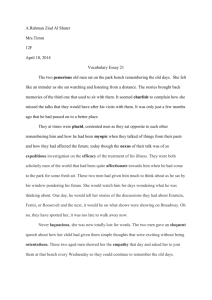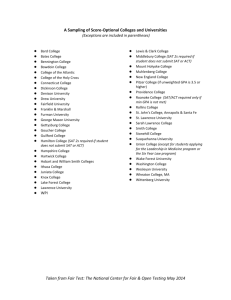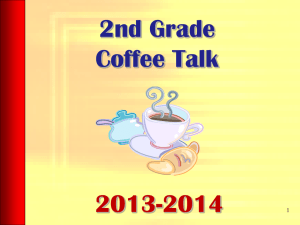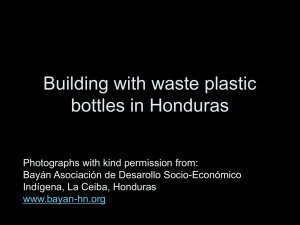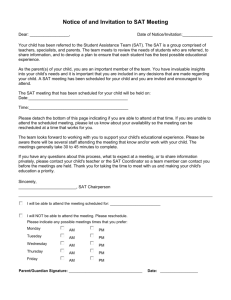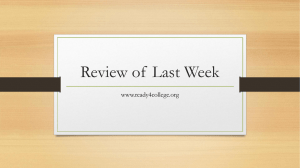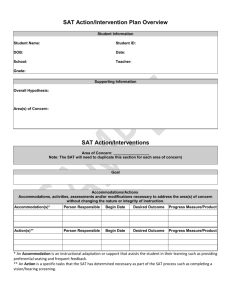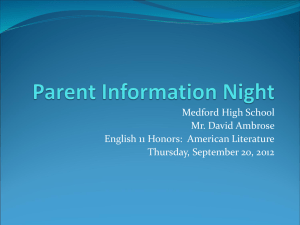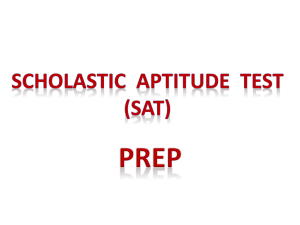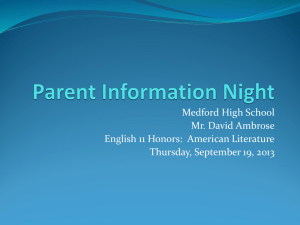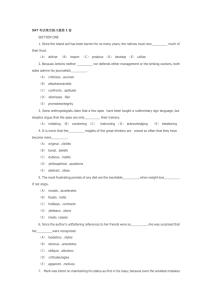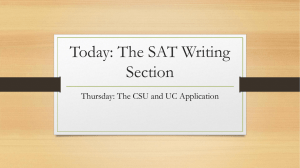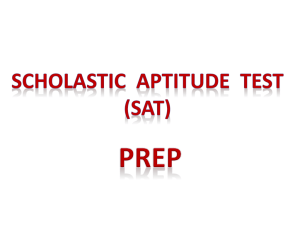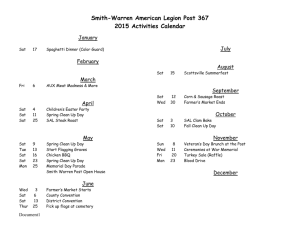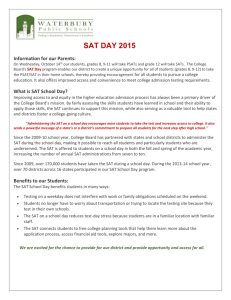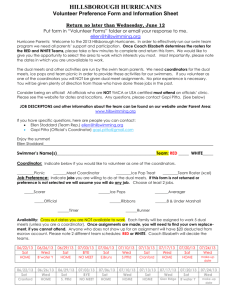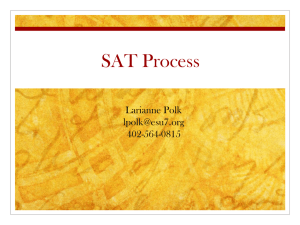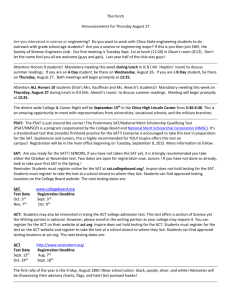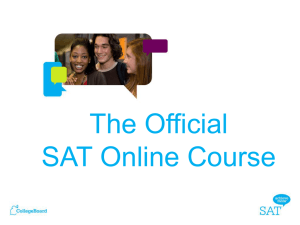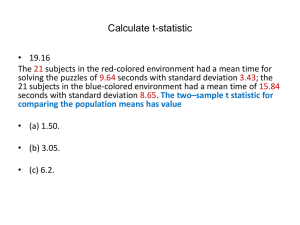AP GSA Presentation
advertisement
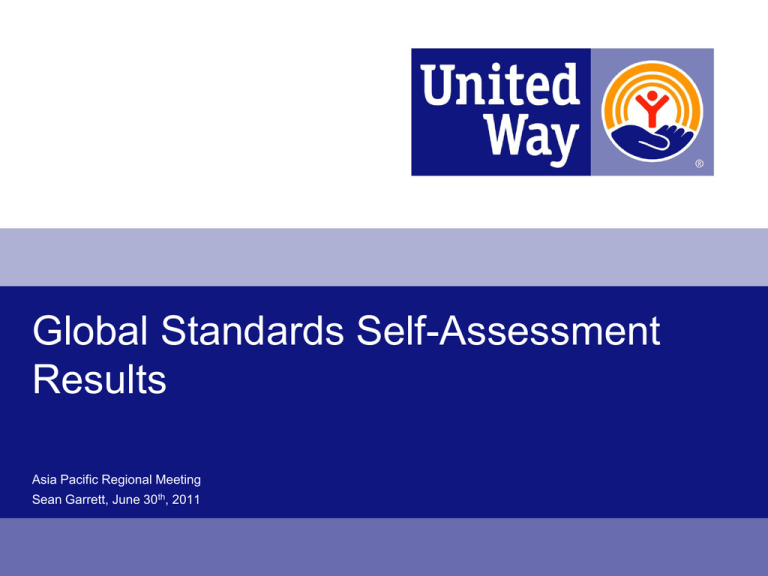
Global Standards Self-Assessment Results Asia Pacific Regional Meeting Sean Garrett, June 30th, 2011 Regional Results Participants • Participation from India, New Zealand, Thailand, Indonesia and Taiwan • 81 total respondents – 48 Staff – 32 Board Members and Volunteers – 1 Community Partner 2 Key Themes • Mature operations with basic business operations in place • Strong fundraising and governance practices in place • Opportunity to better involve and manage relationships with stakeholders in the work of United Way • There is a need to better define and implement community impact strategies • Characteristics of organizations in between the community chest and community impact models • Not everyone is in the same place 3 Greatest Strengths • Standards – 2.4 Safety, Courtesy, Respect and Support – 1.4 Root Causes – 2.6 Inclusiveness and Diversity – 4.4 Legal Operation • Components – Resource Mobilization – Governance, Ethics and Volunteer Leadership – Volunteerism 4 Greatest Opportunities • Standards – 2.2 Mutually Beneficial – 2.5 Accurate Representation – 1.3 Shared Vision – 6.3 Culture of Relationships – 7.3 Involvement of People – 7.4 System Approach to Management • Components – Operations and Management – Reputation and Relationships – Financial Accountability and Transparency – Community Impact 5 The use of SAT by UW of Taiwan 6 Steps taken by UW of Taiwan • Introduction of Global Standards • Communication with Board members • Translation of Global Standards and SAT • Review with Standing board members • Board & Staff retreat for future strategies • Strategic plan 7 Introduction of Global Standard • Since 2006 • Explore US united way models • Localization – language, scope of community … etc. • Pilot programs • Communication – with staff, volunteers and partners 8 Board members • Report & Introduction of Self Assessment Tool • Review SAT with individual board members • Collect feedback (agrees and disagrees) over the process • Communicate misunderstanding and differences • Lessons learned • Definition of “community” – the role of State, Market. Civil Society and Family • Positioning of UW organizations varies • Redefining 3 focuses – Education, Income and Health 9 Board & Staff retreat • Use SAT as a reference structure for further development • Reflect on differences with local facts • Communication, communication, and more communication • Visions, strategic goals … etc. • Benefits • Reminder of improving governance capacity • Restructuring sub-committees – auditing and ethics • Bold action as milestone for UWTW as 2012 will be our 20th anniversary 10 Next steps Outcome Measurement SW org needs Fund & allocation What Matters Org. capacity building Community Impact for Common Good Community Impact Focus on Program outcomes @TW Community Impact Give Advocate Volunteer Positive change for community FOCUS AREA • OPPORTUNITY • INCOME • CARE Table Discussion • How can we use regional network to improve my local work? • What are the vehicles we can use to do this? – The Asia Pacific Learning Center – Regional Conferences – On webinars – Conference Calls – Other exchange opportunities Thank you
